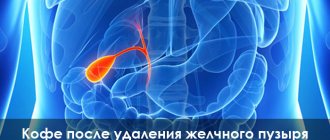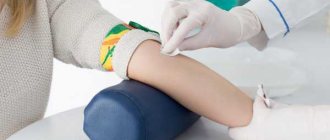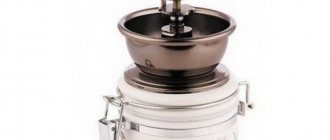People who have been scheduled for an ultrasound examination are interested in whether it is possible to eat before an abdominal ultrasound. There is usually no need to follow a diet before an ultrasound scan. An exception is the examination of the abdominal organs. Such diagnostics will provide maximum accuracy only with proper preparation. Otherwise, the result will be distorted by interference, resulting in an incorrect diagnosis.
How to eat properly?
Is it possible to eat before an ultrasound? Ultrasound examination is performed on an empty stomach. Therefore, you cannot eat for 8-10 hours and drink for 2-3 hours. For children, the duration of fasting is reduced. Infants are not allowed to eat for 3 hours, 1-3 year olds for 4 hours, and children aged 3-12 years for 6-8 hours. It is not recommended for children to drink water within an hour.
People diagnosed with diabetes should not fast for long periods of time. Therefore, before the session, they can drink tea and eat a piece of dried white bread. You need to eat little by little, but often (every 3-4 hours). You can't wash down your food. Drinking is allowed only 40 minutes after a meal or an hour before it. While eating, you should not rush or talk to prevent swallowing air.
During the day, you should drink about one and a half liters of liquid: purified or mineral still water, unsweetened lightly brewed tea, herbal teas, unsweetened compote, liquid jelly.
Dinner on the eve of diagnosis should be light; meat and fish dishes should not be consumed. You cannot have breakfast on the day of the diagnosis. If the examination is scheduled for the afternoon, then a light breakfast is allowed, but a couple of hours before going to the clinic you need to take enterosorbents.
Is it possible to eat before an abdominal ultrasound?
You must follow a diet for three days before the examination. Completely eliminate foods that contribute to the formation of intestinal gases from your diet. You need to eat little by little, every three hours, and do not wash down your food. In this case, you need to drink at least two liters of fluid per day. It is best to drink weak tea or still mineral water an hour before or an hour after a meal.
You cannot eat immediately before the test; it is done on an empty stomach. If you are scheduled for a test after 3:00 p.m., you can have a light breakfast at eight in the morning.
Prohibited and permitted products
The diet before an abdominal ultrasound is aimed at high-quality visualization, obtaining the most accurate results and preventing distortions. Therefore, for 3-4 days before the examination, you need to pay special attention to nutrition. It is necessary to consume foods that minimize irritation of the mucous membranes and gas formation, and prevent contraction of smooth muscles.
Foods that increase gas formation should be excluded from the diet:
- black bread;
- baked goods;
- fatty meat and fish;
- chocolate and candies;
- vegetables and fruits;
- legumes;
- sausages;
- smoked meats;
- fried foods;
- pickles and marinades;
- herbs and spices;
- mushrooms;
- dairy products;
- coffee and strong tea;
- juices;
- carbonated and alcoholic drinks.
You are allowed to eat porridge from various cereals, boiled in water, lean meat, lean fish, boiled eggs, hard cheese, and white bread. Food needs to be steamed, boiled or baked.
Many people are accustomed to drinking coffee in the morning. But before diagnosis you will have to refrain from this habit. The drink changes the functionality of internal organs, increases vascular tone, relaxes the muscles of the bile duct, and stimulates the activity of the gallbladder.
You can drink tea, but it should be unsweetened and weak. It is recommended to give preference to green tea or a drink made with herbs. But you should not drink it on the day of diagnosis, as it also contains caffeine.
During preparation for an abdominal ultrasound, you can adhere to the following menu:
- Breakfast - one boiled egg, green tea.
- Lunch - a piece of low-fat hard cheese.
- Lunch - boiled or steamed dietary meat, compote.
- Afternoon snack - porridge.
- Dinner - boiled or baked low-fat fish, still mineral water.
Following a diet before diagnosis will not only ensure high accuracy of the result, but will also benefit the body - it will have a healing effect, allow you to lose several kilograms, and reduce the load on the internal organs.
Coffee before an ultrasound: what does it affect?
Most medical centers recommend eliminating alcohol, fatty foods, fried foods, juice, soda, sweets, dairy and legumes 2-3 days before the examination. Caffeine is also prohibited. It is difficult for coffee lovers to spend 3 days without their favorite drink, so most responsible people still break their diet by allowing themselves a small cup of coffee. But on the day of the examination you need to refuse it.
Please note that tea also contains caffeine, so it is recommended to avoid it before the examination.
Usually an ultrasound of the abdominal cavity is done in the morning, on an empty stomach. If the procedure is carried out after 15:00, you are allowed to eat some food in the morning. Coffee is usually a no-no, but if you have extremely low blood pressure, you should discuss this issue with your doctor, as some studies have shown that its effect is not that significant.
Interestingly, many people who have problems with the gastrointestinal tract constantly start their day with coffee, as it has a positive effect on their well-being:
- The smooth muscles of the bile ducts relax, the gallbladder works more actively. That is, if the gallbladder is examined, the picture after drinking coffee will be incorrect, and the problem may not be noticed.
- Caffeine stimulates the active secretion of gastric juice. Even a small cup of a weak drink can significantly increase its quantity and concentration, which again distorts the real situation.
- Caffeine constricts all blood vessels in the body, including those in the gastrointestinal tract. This makes foods in the small intestine less absorbed and take longer to digest. An ultrasound will only show that the process is progressing, but it is not clear why it is so slow - due to caffeine or certain problems.
To get 100% accurate data, it is better to give up caffeine, or discuss this issue with your doctor and ultrasound specialist.
You should not drink coffee in the hope that it will not affect anything, because it concerns your health. The examination is carried out in order to identify the real problem, and it is better to be patient in the morning and find out reliable information about your health than to hide the problem or start treatment if there is no real disease. Some medical centers refuse to do an abdominal ultrasound if the patient drank coffee or tea on the day of the examination.
Do an ultrasound on an empty stomach, and then drink your favorite drink. Most examinations are carried out in the morning, so it is not so difficult to comply with the condition of not consuming caffeine on the day of the ultrasound. The procedure is completed in just a few minutes, and you will then be able to drink caffeinated drinks. Take a thermos with you, or find a cafe nearby if you still can’t wake up and feel cheerful.
Some important nuances
12 hours before the diagnosis, you should cleanse the intestines by doing an enema - using an Esmarch mug, 1.5 liters of cool water are injected into the rectum. An alternative to an enema can be microenemas or laxatives.
If necessary, your doctor may prescribe medications to improve digestion and prevent flatulence. It is advisable to avoid other medications, especially antispasmodics. If this cannot be done, then you must inform your doctor.
You must refrain from smoking for two hours before diagnosis, as nicotine provokes spasms of the gallbladder and stomach. In addition, smoking promotes air absorption.
Before going to the clinic, you should not use refreshing lollipops or chewing gum.
If an examination of the genitourinary system is planned, an hour and a half before the procedure you need to drink a liter of gas-free water and not urinate.
If the patient has undergone colonoscopy, fibrogastroduodenoscopy, or radiography with contrast, then an ultrasound examination can be done only after two days.
When to start preparing?
It will take at least three days to cleanse the organs of the digestive system, so preparation for an ultrasound begins three days before the procedure. For gastrointestinal problems such as constipation and indigestion, it is better to adjust your diet earlier before an abdominal ultrasound.
What to eat three days before the examination?
Three days before the procedure, the diet for ultrasound of the abdominal organs involves eating lean boiled meat: quail, chicken, beef. The body needs easily digestible protein, so you should eat low-fat fish: it can be boiled in the traditional way or in a double boiler, or baked in foil without oil. And what you can definitely eat before an abdominal ultrasound is unsweetened porridge with water: pearl barley, oatmeal, buckwheat. One chicken egg every day is acceptable in the diet before an abdominal ultrasound. It is advisable to drink still water or slightly sweetened tea between meals.
The day before the ultrasound
The above-described diet continues until the evening of the third day, if an ultrasound of the abdominal cavity is supposed to be done in the morning. It is advisable to take a laxative and do an enema between 16:00 and 18:00. Is it possible to eat immediately before an abdominal ultrasound? The doctors' answer is unequivocal: it is impossible, since the stomach must be completely free of remnants of food and liquids. If an abdominal ultrasound is scheduled for after 3:00 p.m., it is permissible to eat a light breakfast before 8:30 a.m.
What to do after an ultrasound
After the procedure, the diagnostician gives the patient a protocol that describes each organ and notes all changes. Based on the information received, the doctor who issued the referral makes a diagnosis and prescribes treatment. If necessary, he may prescribe additional diagnostics. If there are no pathologies, then the protocol indicates that there are no peculiarities on the organs located in the abdominal cavity.
After the ultrasound, you can return to your usual lifestyle and normal diet. Dietary restrictions will be necessary only if the doctor prescribes a special diet based on the diagnostic results.
Our clinic offers the following types of ultrasound
- Abdominal ultrasound
- Ultrasound of the pelvic organs
- Ultrasound of the mammary glands
- Kidney ultrasound
- Ultrasound of the thyroid gland
- Ultrasound of neck vessels
- gynecological ultrasound
and others.
Conclusions:
- To obtain the most accurate results, it is recommended to give up coffee 2-3 days before an abdominal ultrasound.
- As a last resort, do not consume caffeine on the day of the test.
- If you cannot give up your favorite drink, be sure to consult your doctor: when investigating certain problems, relaxations in the diet are possible.
- If you hide the fact that you drank coffee, the ultrasound result may be unreliable.
- If coffee is allowed, try to reduce the volume and drink it weakly, choosing a natural rather than instant drink.
- The use of decaffeinated drinks should be discussed with your doctor.
ULTRASOUND OF THE ABDOMINAL ORGANS
3 days before the test, it is advisable to exclude brown bread, whole milk and other dairy products, raw fruits and vegetables from the diet. Don't drink sparkling water. In case of increased gas formation, it is recommended in the evening, on the eve of the test, to take 5-6 tablets of activated carbon (chew and drink with water or crush and add 1/2 glass of water and drink). During meals on the day preceding the study, take 1 tablet (capsule) with each meal of preparations containing digestive enzymes (Festal, Mezim or Pancreatin). An ultrasound of the abdominal organs is performed on an empty stomach or after 5-7 hours from the last meal (for children - 3-4 hours). Before an abdominal ultrasound, you should not smoke or chew chewing gum, as this can lead to contraction of the gallbladder, and thereby distort the results of the study. There are features of performing an ultrasound of the abdominal organs if endoscopic examinations of the stomach and (or) colon are carried out in parallel. That is, if an endoscopy is performed in the morning, then an ultrasound of the abdominal organs can be done no earlier than the next morning. Ultrasound of the abdominal organs is not recommended during and after preparing the intestines for colonoscopy (enemas or laxatives), as well as within 2 days after colonoscopy, since during endoscopy air is pumped into the intestines and retained for a long time, which prevents high-quality ultrasound examination abdominal organs. Children under one year of age are recommended to undergo the test before feeding.
Authorized Products
The diet before ultrasound examination of the abdominal cavity includes non-concentrated broths/soups based on lean chicken and beef with the addition of cereals and vegetables. Dietary varieties of red meat and poultry (chicken, turkey), low-fat varieties of sea/river fish (pike perch, cod, perch) steamed or boiled are allowed.
Side dishes can include buckwheat and oatmeal, white rice, premium wheat pasta, canned/boiled skinless vegetables (carrots, beets, cucumbers, potatoes).
It is allowed to include in the diet hard-boiled rooster eggs or in the form of a steam omelet, butter, unrefined vegetable oils, crackers from snow-white bread, mild cheese, dietary cookies, compotes without grounds, natural fruit juice without pulp, still table water, compotes from dried fruits, ripe melon, honey, natural syrups/jelly, herbal and green tea.











